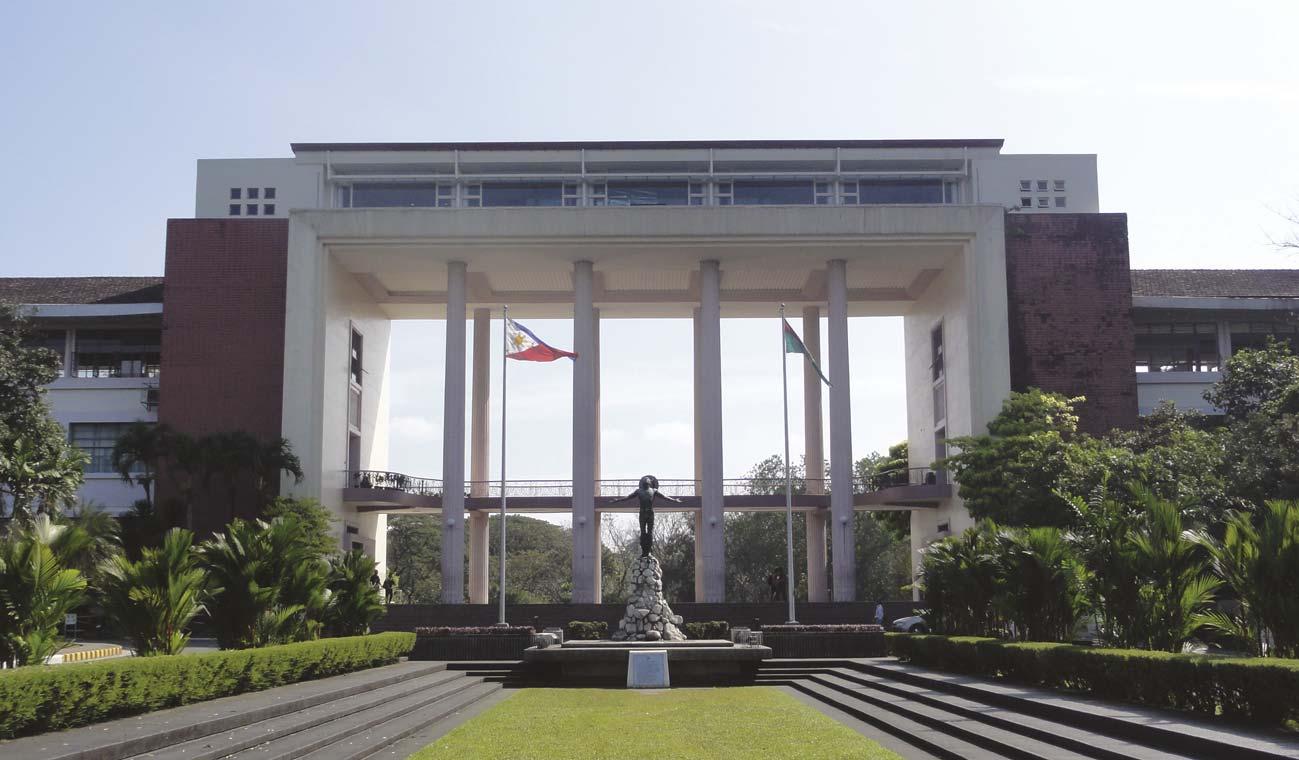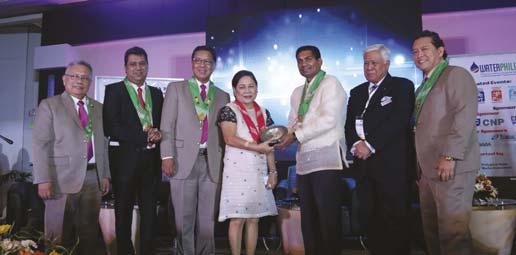
2 minute read
Transforming water quality at the oldest university in the Philippines
Quezon Hall (Main Building) at the University of the Philippines Diliman Campus in Quezon City Image credit: Patrick Roque

Advertisement
The sewage treatment at UP Arboretum (University of the Philippines Arboretum), UP Diliman (University of the Philippines Diliman) Campus in Quezon City, Philippines is located on the oldest university campus in the country where there was a requirement for the quality of the effl uent being treated to be improved to meet new regulations for Class C waters.
To meet the new consents, the operators identifi ed the need to design and build a new sewage treatment plant that was capable of treating 5000m³/day, in addition to the existing seven million litres per day (MLD) sewage treatment plant. However, space was at a premium, so the footprint of the new works needed to be compact. Hence, Nereda technology proved it was the ideal solution to overcome this typical urban spatial challenge as it takes up signifi cantly less space than traditional treatment options. The new treatment works will treat sewage from 30,000 people from UP Diliman Campus and other commercial establishments in the area, including a Technohub located on nearby Commonwealth Avenue.
Nereda is a wastewater treatment technology that relies on aerobic biological action to purify wastewater before returning clean water to the environment. The Nereda process has already been successfully tried and tested around the world, although this is its fi rst application in the Philippines. It requires fewer chemicals than conventional wastewater treatments and meets strict purification standards. This innovative, sustainable process was developed in The Netherlands.
Upon the new plant’s completion in summer 2020, the infl uent sewage will be divided between the existing seven MLD plant and the new fi ve MLD Nereda treatment plant. The waste granular sludge from the Nereda plant will then be fed to the seven MLD plant to improve its overall performance. In fact, once the new plant has demonstrated success results, the operators will look to upgrade the original plant too. WWA
Nereda Technology in brief:
• Small footprint • High quality effl uent • Improved water quality • Low capital expenditure and operational costs • Reduced lifetime operational costs • Sustainable wastewater treatment • Energy savings • Tried and tested technology

















